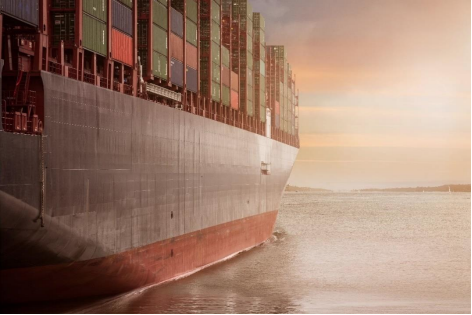Progress towards biofuels for marine shipping
Status and identification of barriers for utilization of advanced biofuels in the marine sector
Biomass has the potential to supply the marine sector with sustainable fuel and is a promising solution for both reducing net carbon emissions and meeting sulphur regulations, which were thoroughly described in the 2017 IEA bioenergy report on Biofuels for the marine shipping sector.
Biofuels consist of many promising candidates* and are closer to commercialization than other alternative fuels/technologies such as ammonia, hydrogen or batteries for marine vessels. Moreover, compatibility with existing fleets is a big asset for several (diesel-type) biofuels, making biofuels a promising short- to medium-term solution to reduce the carbon footprint of the maritime sector and to meet more stringent sulphur regulations.
* main examples are: biodiesel (FAME), Hydrotreated Vegetable Oil (HVO), liquefied biomethane, bio-ethanol, bio-methanol, bio-DME, upgraded bio-oil, Fischer-Tropsch diesel, lignin diesel oil
The benefits of biofuels have to some extent been recognized by the maritime sector, where the interest in biofuels in the last 5 years have been visible through progress in engine development, in sea-going biofuel trials of blends, as well as in 100% biofuel trials. However, greater use of biofuels in the sector is limited by the volumes presently available with delays in commercialization of technologies. This report seeks to uncover the largest barriers for the commercialization of biofuels for the marine sector, as identification of the current barriers will excel concrete actions from various stakeholders advancing the employment of sustainable biofuels in the maritime sector.
To better understand the barriers for the commercialization of marine biofuels, interviews were conducted with key stakeholders involved with the marine freight transportation sector. Key take-ways:
- The overall barrier towards biofuel (and other renewable fuels) investment is the lack of economic incentives. Uncertainty related to price development of biofuel feedstocks, sustainability criteria, as well as regulatory policies can be major barriers for major biofuel investments. However, little concern was expressed by actors in the field towards the technical barriers of scaling-up, establishing supply chains, or adopting engine and fuel systems for new biofuels.
- Several shipping industry stakeholders identify biofuels as the most promising short- to mid-term solution for both for reducing carbon emissions and meeting sulphur regulations. With increasing international stringency on sulphur emissions and ship energy efficiency, the price gap between fossil fuels and biofuels is declining. Especially in some local markets where elevated pricing – due to long distance to major fuel hubs – combined with CO2 pricing and additional hedging cost savings, unite to provide a real opportunity for biofuels to compete with the fossil alternatives.
- There seems to be a general demand among major maritime stakeholders to accelerate the transition towards sustainable solutions, with industry coalitions currently pushing international policy makers to create stronger policies towards realizing net-zero carbon vessels.
- The chemical complexity of different biofuels, variation and availability of biomass, and the plethora of biofuel production methods makes a ‘one-biofuel-fits-all’ scenario unrealistic and creates pressure on local solutions, while making the investment in any single biofuel technology risky.
- An internationally recognized standard defining the sustainability criteria of biofuels would support the further development of biofuel technologies. Likewise, other biofuel-promoting policies should focus on creating a predictable framework and long-term stability to lower the investment risk.
- The current marine (fossil) fuel standard ensures comparison and evaluation of fuel quality, fuel engine compatibility, safety and price. The lack of a dedicated marine fuel standard for specific biofuels obstructs their use, trade and production, and is therefore a barrier for commercialization. The recent IMO interim guidelines on using ethanol and methanol as marine fuels is a great step in the right direction. It facilitates the usage of ethanol and methanol making them more attractive for ship operators. Renewable ethanol or methanol will likely be dominated by biomass sources at least until the 2030s-2040s.
- Some stakeholders put emphasis on the advantages of HFO-compatible drop-in biofuels as they dramatically lower the capital investments associated with the required port infrastructure as well as reduces the need for vessel retrofits.
- The shipping sector is not adapted to quick changes as the small margin business of deep-sea shipping require long-term stable policies to ensure minimal risks investing in new fuel technologies such as biofuels. Without policies targeting alternative fuel technologies more directly such as carbon taxation or renewable fuel mandates, the transition from fossil to alternative fuels will be slow.
Full report – click Progress-towards-biofuels-for-marine-shippingT39-report_June-2021_Final



